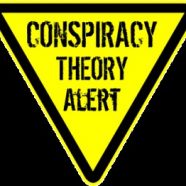
As Covid-19 spreads mercilessly, taking lives, destroying the economy and further polarizing our society, there is another concurrent and dangerous “epidemic” expanding furiously – the unbounding spread of misinformation, especially those incredible conspiracy theories. Despite ongoing efforts to refute these falsehoods, believers remain beholden to these erroneous claims. The biggest risk of this phenomenon is the serious decline of trust of our most cherished brand values throughout our society.
Very simply, a brand is a promise of value to a particular audience. For example, Democracy is a brand that promises society free choices. But such a promise can be delivered only if people have trust in that brand, which is normally cultivated over time with claims that are credible and honest.
The recent election has unleashed an unprecedented surge of disinformation and unsubstantiated claims of fraud that has badly shaken confidence in our Democracy. Many may not be so surprised at the relentless attacks by Trump insisting that the election was rigged and he actually won. What is more perplexing, however, is why so many Americans and political leaders refuse to accept the reality of the election and still believe unfounded claims and conspiracy stories:
- Only 27 Republican members of Congress believe Joe Biden won, and two-thirds of all Republican voters said the election was rigged (source: Reuters/Ipsos poll)
- 77% of Trump backers said Joe Biden won because of fraud.
- A recent global survey found that 37% of Americans believe the conspiracy theory that “there is a single group of people who secretly control events and rule the world together”.
Many blame social media like Facebook and Twitter for all this misinformation. Yes, they are part of the problem in that they accelerate its spread. But the real problem is the source and support of the disinformation that is so rapidly amplified on social media.
Examples of Conspiracy Theories
The rise of these absurd conspiracy tales has exacerbated the decline of trust in our political leaders, our Democratic system and Government institutions like the FDA and CDCD that are so critical for ending the Covid-19 epidemic. Trump’s lawyers like Giuliani and Sidney Powell have spread outrageous stories of how Venezuela was behind the alleged election fraud and how votes were counted in Frankfurt and Barcelona.
Here is an example of how one conspiracy theory originated and spread. It involved a company, Scytl in Barcelona that makes software for local election officials. Someone falsely alleged that the US Army raided its office in Frankfurt (Scytl does not even have an office there) and seized a computer with data which showed that Trump actually won the election with 410 electoral votes. This news was posted on Twitter on November 8 by an anonymous user (@zeynep_mol), which was then picked up by a small news website in India (GreatGameIndia), and then repeated by Representative Louie Gohmart, Republican from Texas, during interviews with Newsmax, a conservative TV network. The story expanded from there.
Why They Believe
The big question is why so many Americans insist on believing such lies and misinformation. There are many theories. The foremost involves a “confirmation bias” where people select and believe the information which reinforces their own opinions or bias. Another is the “where there’s smoke, there’s fire” explanation, where repeated accusations of fraud and the “deep state” eventually convinces enough people that they must be true. Another explanation refers to Trump supporters who are smart, yet constantly question and doubt well established forms of knowledge. They prefer to complain about fake news in general and feel they have secret or inside knowledge that is not covered in traditional discourse.
Another theory involves demographic and economic trends. In our current “information age” people who make their living working with ideas have been rewarded with money and status, and have gravitated to prosperous metro areas. This left more rural areas with fewer college graduates, and flattening incomes. In 1972, people without college degrees were just as happy as those with college degrees. Today they are far less happy, and have become cynical and distrustful of the educated folks in cities with more economic, cultural and political power. It is these “evangelists of distrust” who feel neglected, believe in these conspiracy theories and so rabidly support the Trump brand, his polarizing accusations and even QAnon.
This widespread acceptance of disinformation has led to such a dangerous level of brand mistrust which can endanger our efforts to overcome this pandemic. Successful vaccinations will be achieved only if enough Americans take that shot in their arms, but this broad lack of trust for our Government, science and even companies like Pfizer will make this a big challenge. Rebuilding trust will unfortunately be the work of a generation.


